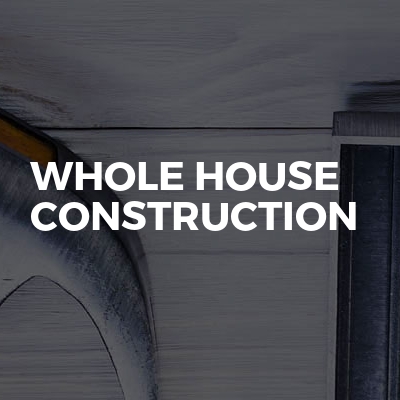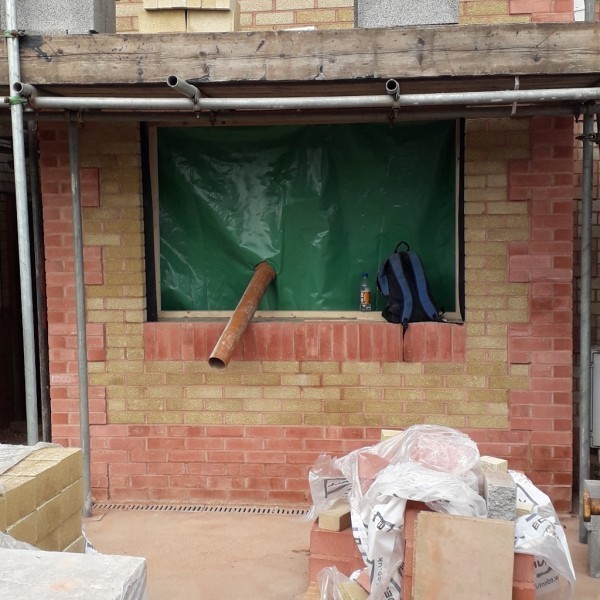Understanding Garage Conversions in Chepstow/Cas-Gwent
Garage conversions in Chepstow/Cas-Gwent have become increasingly popular as homeowners seek to maximise their living space without the hassle of moving. This trend is not only practical but also adds significant value to properties. In this article, we'll explore the ins and outs of garage conversions, offering insights into the process, benefits, and considerations specific to the Chepstow/Cas-Gwent area.
The Appeal of Garage Conversions
Garage conversions are an attractive option for many homeowners. They offer a cost-effective way to increase living space, whether for a new bedroom, home office, or playroom. In Chepstow/Cas-Gwent, where property prices can be steep, converting a garage is a savvy investment. It allows homeowners to enhance their living environment without the need to purchase a larger home.
Cost-Effectiveness
One of the primary reasons homeowners opt for garage conversions is the cost-effectiveness. Compared to building an extension or moving house, converting a garage is relatively inexpensive. The existing structure provides a solid foundation, reducing the need for extensive construction work. This makes it an appealing choice for those looking to expand their living space on a budget.
Increased Property Value
Another significant advantage of garage conversions is the potential increase in property value. A well-executed conversion can add up to 20% to the value of a home. In Chepstow/Cas-Gwent, where the property market is competitive, this can be a substantial financial benefit. Prospective buyers often view additional living space as a major selling point, making your home more attractive on the market.
Planning and Permissions
Before embarking on a garage conversion in Chepstow/Cas-Gwent, it's crucial to understand the planning and permission requirements. While some conversions may not require planning permission, others might, depending on the scope of the project and local regulations.
Permitted Development Rights
In many cases, garage conversions fall under permitted development rights, meaning you won't need formal planning permission. However, this is contingent on the conversion meeting specific criteria, such as not altering the building's exterior significantly. It's always wise to check with the local planning authority to ensure compliance with all regulations.
Building Regulations
Regardless of whether planning permission is required, all garage conversions must comply with building regulations. These regulations ensure that the conversion is safe and energy-efficient. Key areas covered include structural integrity, fire safety, insulation, and ventilation. Hiring a qualified professional to oversee the project can help ensure all regulations are met.
Design Considerations for Garage Conversions
Designing a garage conversion involves careful planning to make the most of the available space. Whether you're creating a cosy guest room or a functional home office, the design should reflect your needs and lifestyle.
Space Utilisation
Effective space utilisation is crucial in garage conversions. Consider how the space will be used and plan the layout accordingly. For instance, if you're converting the garage into a home office, ensure there's ample natural light and sufficient electrical outlets for your equipment. Clever storage solutions can also help maximise the space.
Interior Design
The interior design of your converted garage should complement the rest of your home. Choose colours, materials, and furnishings that create a cohesive look. If the garage is attached to the house, consider how the transition between spaces will be managed. A seamless flow can enhance the overall aesthetic and functionality of your home.
Choosing the Right Professionals
Hiring the right professionals is essential for a successful garage conversion. From architects to builders, each plays a crucial role in bringing your vision to life.
Architects and Designers
An architect or designer can help you plan the layout and design of your converted space. They can provide valuable insights into maximising the space and ensuring it meets your needs. Additionally, they can assist with obtaining necessary permissions and ensuring compliance with building regulations.
Builders and Contractors
Choosing experienced builders and contractors is vital for the quality of the conversion. Look for professionals with a proven track record in garage conversions. They should be able to provide references and examples of previous work. Clear communication and a detailed contract can help ensure the project runs smoothly and on budget.
Common Challenges and Solutions
While garage conversions offer many benefits, they can also present challenges. Being aware of these potential issues can help you plan effectively and avoid common pitfalls.
Structural Issues
One of the most common challenges in garage conversions is dealing with structural issues. Garages are often not built to the same standards as the rest of the house, which can lead to problems with insulation, dampness, and stability. Addressing these issues early in the planning process can prevent costly repairs down the line.
Lighting and Ventilation
Garages typically have limited natural light and ventilation, which can make them feel dark and stuffy. Incorporating windows, skylights, and ventilation systems into the design can create a brighter, more comfortable space. Consider energy-efficient options to keep utility costs down.
Case Studies of Successful Garage Conversions
Examining case studies of successful garage conversions can provide inspiration and insights for your project. In Chepstow/Cas-Gwent, several homeowners have transformed their garages into stunning living spaces.
From Garage to Guest Suite
One homeowner converted their detached garage into a luxurious guest suite. By adding a small bathroom and kitchenette, they created a self-contained space perfect for visitors. The project included installing large windows to bring in natural light and using high-quality materials for a polished finish.
Home Office Transformation
Another successful conversion involved transforming a single-car garage into a modern home office. The design featured built-in shelving, a large desk, and ample lighting. The homeowner opted for a minimalist aesthetic, using neutral colours and sleek furnishings to create a professional yet inviting workspace.
Environmental Considerations
As environmental awareness grows, many homeowners are considering the ecological impact of their garage conversions. Sustainable practices can reduce the environmental footprint of your project and create a healthier living space.
Energy Efficiency
Incorporating energy-efficient features into your garage conversion can significantly reduce energy consumption. Consider using high-quality insulation, energy-efficient windows, and LED lighting. These measures not only benefit the environment but can also lead to long-term cost savings on utility bills.
Eco-Friendly Materials
Choosing eco-friendly materials for your conversion can further enhance its sustainability. Look for materials that are recycled, renewable, or have a low environmental impact. Options such as bamboo flooring, recycled glass tiles, and low-VOC paints are excellent choices for an environmentally conscious project.
Financing Your Garage Conversion
Financing a garage conversion can be a significant consideration for homeowners. Understanding the available options can help you make informed decisions and manage your budget effectively.
Personal Savings
Using personal savings is a straightforward way to finance your garage conversion. It allows you to avoid interest payments and debt. However, it's essential to ensure you have enough savings to cover unexpected expenses that may arise during the project.
Home Improvement Loans
Home improvement loans are a popular option for financing garage conversions. These loans are specifically designed for home renovation projects and often offer competitive interest rates. Be sure to compare different lenders and terms to find the best option for your needs.
Frequently Asked Questions
What is the average cost of a garage conversion in Chepstow/Cas-Gwent?
The cost of a garage conversion can vary widely depending on the size and complexity of the project. On average, homeowners can expect to spend between £10,000 and £20,000. This estimate includes materials, labour, and any necessary permits.
Do I need planning permission for a garage conversion?
In many cases, garage conversions fall under permitted development rights, meaning planning permission is not required. However, it's essential to check with the local planning authority to ensure your project complies with all regulations.
How long does a garage conversion take?
The duration of a garage conversion can vary depending on the scope of the project. On average, most conversions take between four to six weeks to complete. Factors such as design complexity and unforeseen issues can affect the timeline.
Can I convert a detached garage?
Yes, detached garages can be converted into living spaces. However, additional considerations such as utilities and access may need to be addressed. Consulting with a professional can help ensure a successful conversion.
Will a garage conversion add value to my home?
A well-executed garage conversion can add significant value to your home. It provides additional living space, which is often a major selling point for potential buyers. In Chepstow/Cas-Gwent, this can be particularly advantageous given the competitive property market.
What are the building regulations for garage conversions?
Building regulations for garage conversions cover areas such as structural integrity, fire safety, insulation, and ventilation. Compliance is essential to ensure the safety and efficiency of the converted space. Hiring a qualified professional can help ensure all regulations are met.
In conclusion, garage conversions in Chepstow/Cas-Gwent offer a practical and cost-effective way to enhance your living space and increase property value. By understanding the planning requirements, design considerations, and potential challenges, you can embark on a successful conversion project that meets your needs and adds lasting value to your home.














